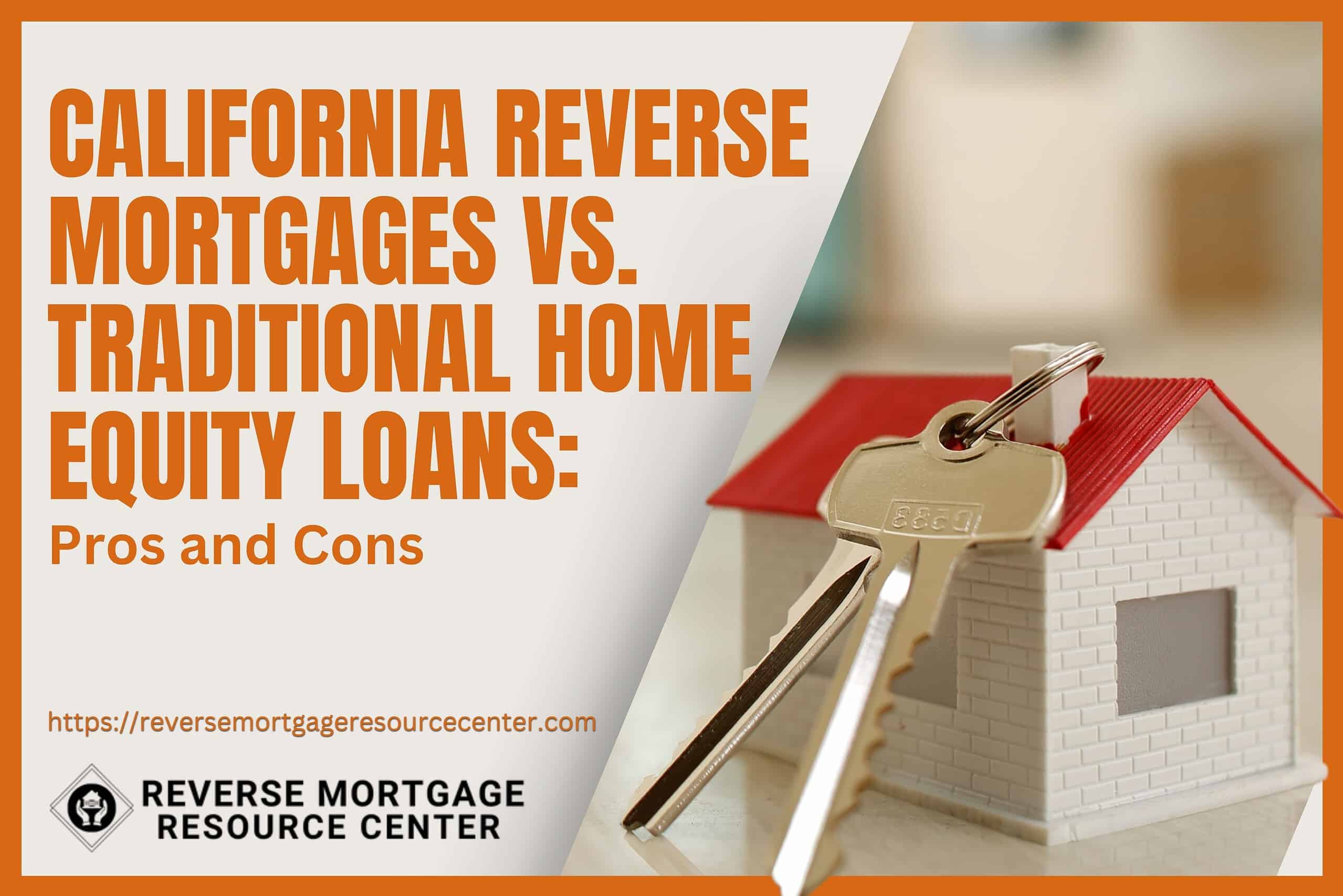California Reverse Mortgages vs. Traditional Home Equity Loans: Pros and Cons
In the golden years of retirement, financial challenges can cast shadows over the tranquility that seniors seek. As the cost of living rises and unexpected expenses loom, homeowners often find themselves exploring avenues to leverage the equity built in their homes. Two popular options in California are Reverse Mortgages and Traditional Home Equity Loans. In this comprehensive guide, we will delve into the pros and cons of each, shedding light on the considerations that matter most to seniors facing financial uncertainties.
Understanding California Reverse Mortgages
Pros
Financial Flexibility
Reverse Mortgages offer seniors a unique financial lifeline by converting a portion of their home equity into tax-free cash. Unlike traditional home equity loans, there are no monthly payments, and the funds can be used for any purpose, providing flexibility in managing expenses and enhancing the overall quality of life.
Stay in Your Home
One of the most appealing aspects of a Reverse Mortgage is that homeowners can continue to live in their homes without the burden of monthly payments. This can be especially comforting for seniors who wish to age in place and maintain the familiar surroundings they’ve cherished for years.
No Income Qualification
Traditional loans often require a steady income to qualify, which can be a hurdle for retirees with limited income sources. Reverse Mortgages, however, do not have income requirements, making them more accessible for seniors who may rely primarily on social security or pension payments.
Government Insured
Many Reverse Mortgages are insured by the Federal Housing Administration (FHA). This government backing provides an additional layer of security for borrowers, assuring them that they will receive the agreed-upon fund disbursements even if the lender goes out of business.
Line of Credit Option
In addition to receiving funds in a lump sum or monthly installments, Reverse Mortgages offer a line of credit option. This flexible feature allows seniors to access funds when needed, potentially serving as a strategic financial planning tool.
Cons
Accumulating Interest
While there are no monthly payments with Reverse Mortgages, interest accrues over time. This means the loan balance can grow, potentially reducing the inheritance left to heirs. Seniors should carefully weigh the long-term implications and consult financial advisors to make informed decisions.
Home Equity Erosion
Since a Reverse Mortgage converts home equity into readily accessible funds, it reduces the amount of equity available to pass on to heirs. While this is a natural outcome of using this financial tool, it’s essential for seniors to be aware of the impact on their estate planning.
Upfront Costs
Reverse Mortgages often come with upfront costs, including mortgage insurance premiums and closing fees. While these costs can be rolled into the loan, they contribute to the overall expenses associated with this financial product.
Potential Impact on Government Benefits
Depending on the amount received through a Reverse Mortgage, seniors may find themselves with assets that affect their eligibility for certain means-tested government benefits. It’s crucial to understand the implications and plan accordingly.
Exploring Traditional Home Equity Loans
Pros
Fixed Interest Rates
Traditional Home Equity Loans typically come with fixed interest rates, providing predictability for budget-conscious seniors. This stability can be a crucial factor in financial planning, allowing homeowners to anticipate monthly payments without the uncertainty of fluctuating interest rates.
Control Over Loan Amount
With a Traditional Home Equity Loan, borrowers have control over the loan amount they want to take, allowing them to tailor the loan to their specific needs. This can be advantageous for seniors who clearly understand their financial requirements and prefer a lump sum payment.
Preservation of Home Equity
Unlike Reverse Mortgages, traditional home equity loans do not erode home equity over time. The amount borrowed is fixed, and homeowners can continue to build equity as they make regular payments. This can be a critical consideration for those prioritizing leaving a substantial inheritance to their heirs.
Potential Tax Deductions
In some cases, the interest paid on a Traditional Home Equity Loan may be tax-deductible. Seniors should consult with tax professionals to understand the specific implications based on their individual circumstances.
Cons
Monthly Repayments
One of the primary drawbacks of Traditional Home Equity Loans is the requirement for monthly payments. This can be a challenge for retirees on a fixed income, as it introduces an ongoing financial obligation that may strain their budget.
Risk of Foreclosure
Failing to meet the monthly payments on a traditional home equity loan can put the borrower at risk of foreclosure. Considering their overall financial stability, seniors must carefully assess their ability to meet these obligations before committing to such loans.
Income Qualification
Traditional loans often require a steady income, which can be a hurdle for retirees with limited income sources. Seniors may find it challenging to qualify for a traditional home equity loan, especially if their primary income comes from sources like social security or pensions.
Making an Informed Decision
Consider Your Financial Goals
Before deciding between a Reverse Mortgage and a Traditional Home Equity Loan, clarifying your financial goals is crucial. If you prioritize staying in your home without the burden of monthly payments and need flexibility in using your home equity, a Reverse Mortgage may be the more suitable option. On the other hand, if you prefer a fixed lump sum amount and want to preserve your home equity for inheritance purposes, a Traditional Home Equity Loan might align better with your objectives.
Assess Your Current and Future Needs
Consider both your current and anticipated future needs. If you have immediate expenses or anticipate ongoing financial requirements, a Reverse Mortgage’s flexible disbursement options may be more appealing. Conversely, if you have a clear understanding of a specific financial need and prefer a structured payment plan, a Traditional Home Equity Loan could be a better fit.
Consult with Financial Professionals
Seeking guidance from financial professionals, including certified financial planners and mortgage advisors, is a crucial step in making an informed decision. These experts can analyze your unique financial situation, explain the intricacies of each option, and help you navigate the complexities of reverse mortgages or traditional home equity loans.
Evaluate Long-Term Implications
Consider the long-term implications of your decision. If leaving a significant inheritance to your heirs is a priority, a Traditional Home Equity Loan may be more aligned with this goal. Alternatively, a Reverse Mortgage could better suit your needs if you prioritize financial flexibility and staying in your home without monthly payments.







